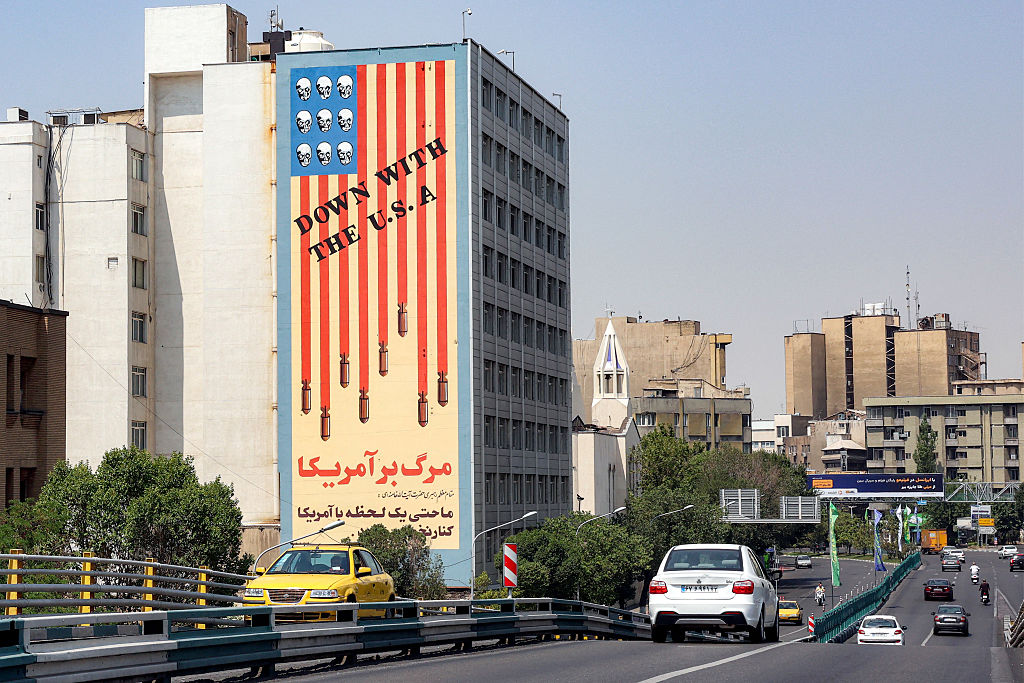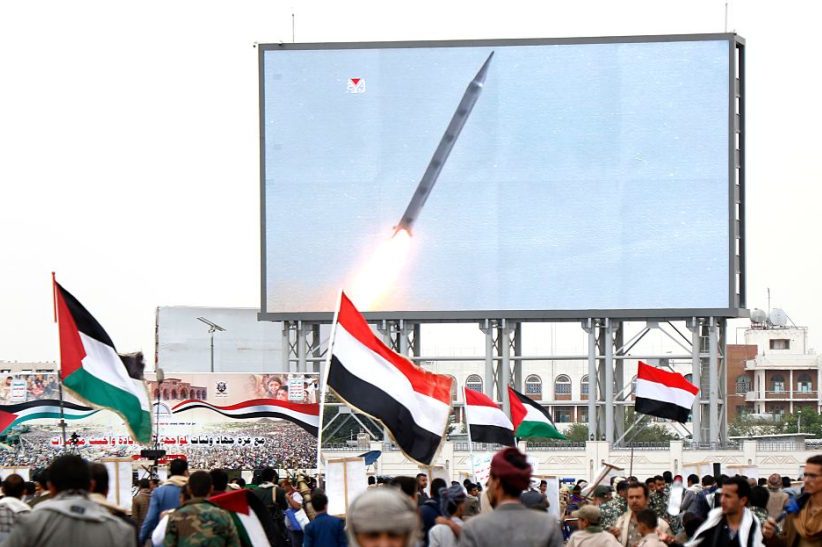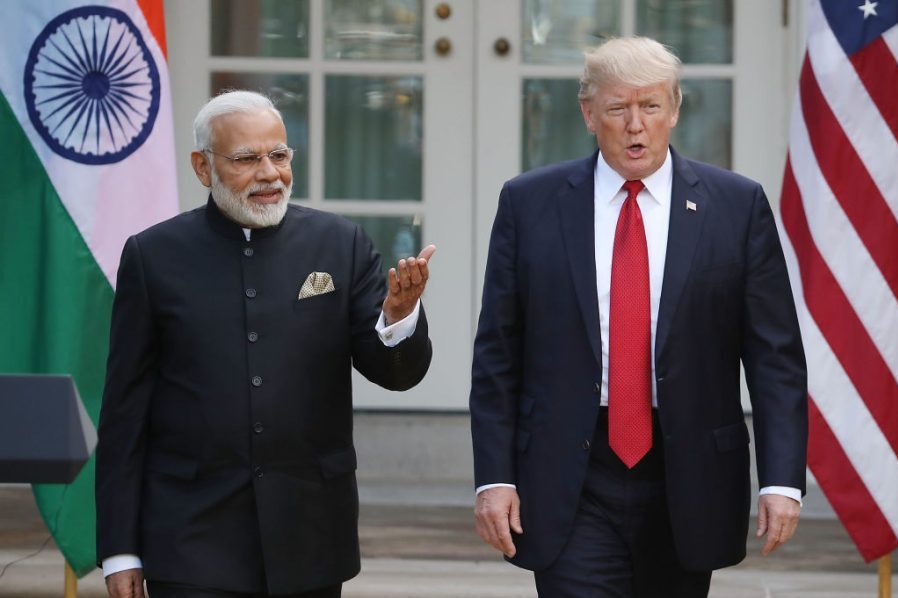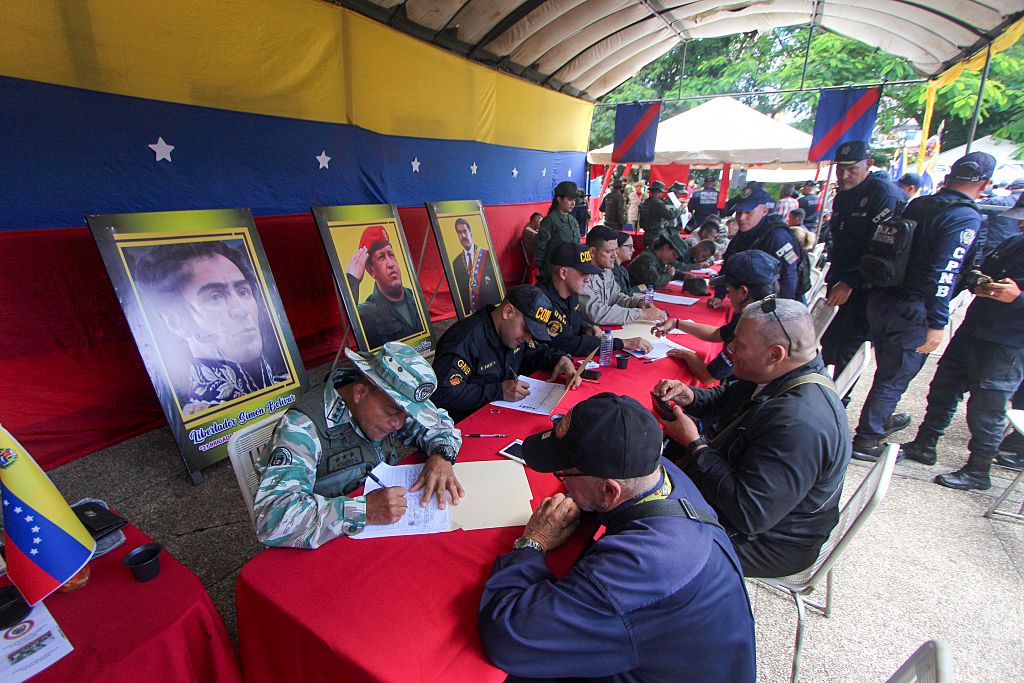I write at the very beginning of July. Where I live in Connecticut, people are unpacking flags and bunting in preparation for the July 4 festivities. Elsewhere, the trumpets sounding to accompany Donald Trump’s triumphant announcement of a ceasefire between Iran and Israel have subsided. It is clear that the President dearly wants peace. So does Israel. For its part, Iran wants the extermination of “the Zionist entity” and, beyond that, the eventual extinction of the “Great Satan,” America.
How do I know? Iranian spokesmen keep telling the world just that. I wonder if Salman Rushdie has reached out to Trump now that he has joined the exclusive club of those upon whom the lunatics in charge of Iran have explicitly pronounced a fatwa – a death sentence. Rushdie’s nomination to the club came back in 1989 after publication of his novel The Satanic Verses. It is a lifetime appointment. It was not until 2022, some 30 years later, that a soldier in the mullah’s legions got around to attacking the novelist. That knife attack nearly killed Rushdie and cost him the sight of his right eye.
Now partisans of the Religion of Peace are at it again. A couple of days ago, Grand Ayatollah Naser Makarem Shirazi issued a fatwa against Trump for saying mean things about the pooh-bah in chief, the Supreme Leader Ayatollah Ali Khamenei. Trump had earlier noted that he knew exactly where Khamenei was hiding out but that he declined to allow Israel or the US armed forces to kill him. Nevertheless, Shirazi declared Trump a “mohareb,” an enemy of Allah, and called “upon all Muslims across the world” to kill him.
Shirazi declared Trump a ‘mohareb,’ an enemy of Allah, and called ‘on all Muslims across the world’ to kill him
What a difference a week makes. In the immediate aftermath of America’s stunning attack against Iran’s atomic bomb-making workshops, Trump held out an olive branch. “Look,” he said (I paraphrase), “the entire civilized world agrees that you may not acquire a nuclear weapon. Every US president going back to Mr. Peanut Jimmy Carter has insisted on that. You ignored our warnings. Result? Israel crippled your proxy states, crushed your air defense systems and killed most of your top nuclear scientists and other scary bad guys. Then we delivered the coup de grâce with a pack of B-2 bombers and Tomahawk cruise missiles that targeted your hardened bomb-making facilities. It’s time to get with the program. We’ll leave your mullahs in place but you must give up on trying to get nuclear weapons.”
With their war-fighting and uranium-enriching capacity pulverized and much of their leadership eliminated, Iran at first made some conciliatory noises. Trump was delighted. He championed the impending peace deal. He upbraided Bibi Netanyahu when the Israeli Prime Minister retaliated against an Iranian missile strike. But within a week Iran was back on the warpath. There was that fatwa against Trump (and another against Netanyahu, ex officio, as it were), of course. But beyond that, Iranian spokesmen said they would never give up their nuclear program. One big question concerned the fate of the pile of enriched uranium that Iran had already produced. It wasn’t quite potent enough to make an atomic bomb. But at some 60 percent enriched, it was close to the 90 percent needed for the big bang.
Presumably, the centrifuges needed to continue that process had all been destroyed. But what about that stash of U-235? Had it all met its bunker-buster and been destroyed? Or had it been ferried away to some secure, undisclosed location? As of this writing, we do not know.
I suspect that by the time you read this we will know a good deal more. Since 1979, the Shia fundamentalists of Iran have been a thorn in the side of the civilized world. Directly, and through numerous proxies such as Hezbollah in Lebanon and Hamas in Gaza, they have strewn murder and mayhem in their pursuit of a Judenfrei worldwide Caliphate.
By and large, the West has grudgingly accommodated Iran’s petulant malevolence. In 1988, Ronald Reagan responded to the mining of the Persian Gulf, which severely damaged a US Navy warship, with Operation Praying Mantis, which destroyed two Iranian oil platforms and the bulk of its naval assets. But the more usual US response has been acquiescence and danegeld, epitomized by Barack Obama’s little gift to Iran of $400 million in cash, conveniently arranged on a pallet in neat packets.
As Carl von Clausewitz famously observed: “Der Krieg ist eine bloße Fortsetzung der Politik mit anderen Mitteln” (“War is merely a continuation of diplomacy with other means”). His sobering point, or part of it, was that war and diplomacy were not so much opposites as extensions of each other. As the Cold War era wound down, our policy elites tended to lose sight of this insight. The commentator Glenn Reynolds, writing about the B-2 raid on Iran’s nuclear assets, observed that:
For a couple of decades after World War Two, US diplomacy was backed by the belief that words would be backed by force. After a while, our foreign policy elite began to see diplomacy as a substitute for force, not an adjunct to it. As soon as that happened, diplomacy lost most of its power. “Jaw jaw,” as Churchill said, may be better than “war war,” but the jawing mostly works because war is the alternative. If the alternative is just more jawing, not so much.
The great Elie Wiesel, a Holocaust survivor, well understood the point Reynolds expresses here. Asked what lessons he drew from his experience in Auschwitz and Buchenwald, he said: “When people say they are trying to kill you, believe them.” Sage advice, whether you are dealing with Nazis or Ayatollahs.
This article was originally published in The Spectator’s August 2025 World edition.


























Leave a Reply